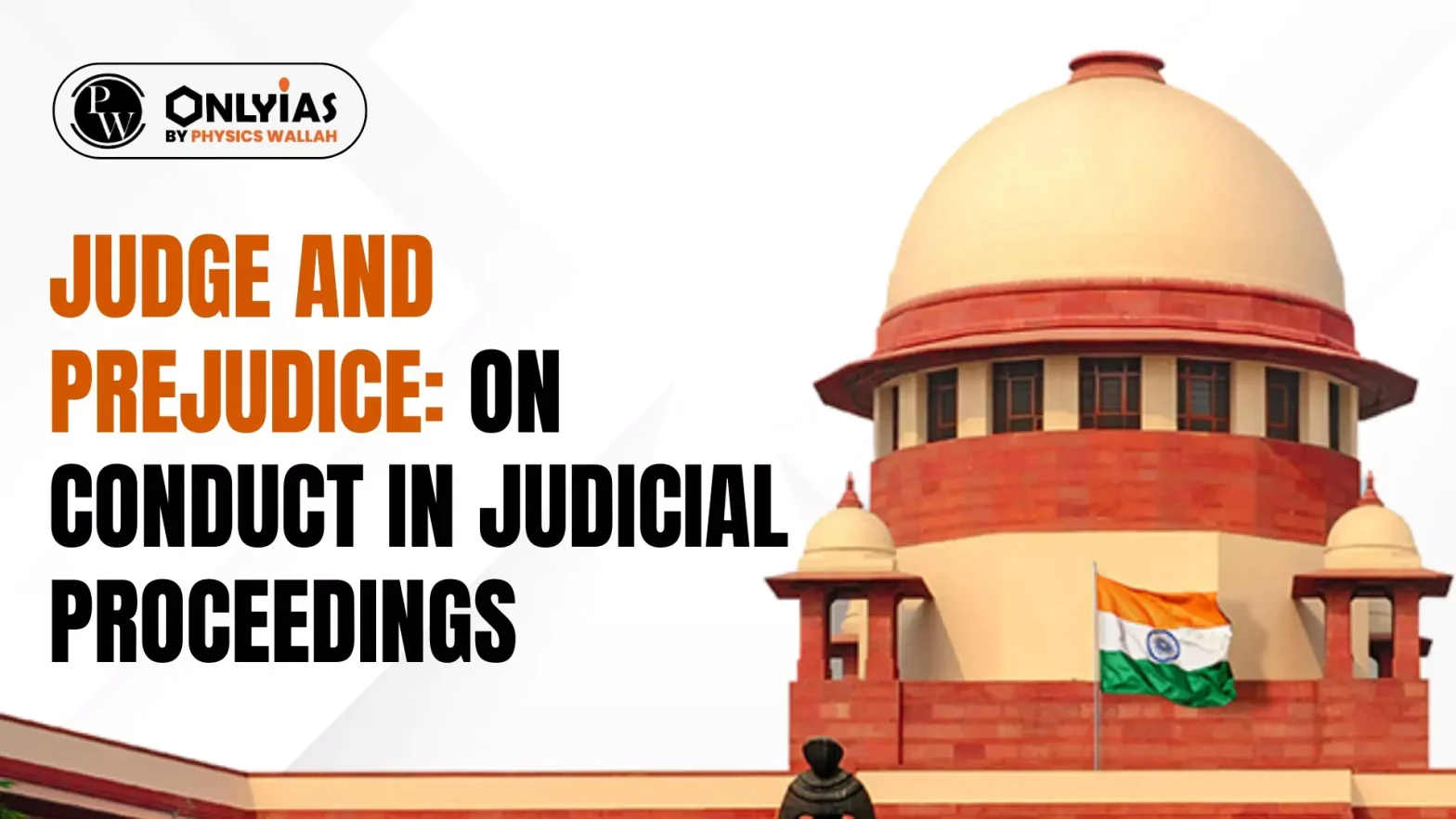The increasing trend of live-streaming court proceedings has brought both benefits and challenges to the judicial system. While it promotes accountability and public awareness of how proceedings are conducted, it has also exposed inappropriate behaviour by judges.
Issue
- Misogyny and Bias in Judicial Discourse: Recently, a Karnataka judge made a lewd comment to a female lawyer, suggesting she was so familiar with the opposition party that she might know the colour of their undergarments, highlighting misogynistic attitudes. Additionally, in another case, a judge referred to a Muslim-majority area in Bengaluru as “mini Pakistan.” Such remarks, previously concealed from public scrutiny, have come to light through live processing, casting the judiciary in a negative light.
- Supreme Court’s Intervention: The Supreme Court has responded by taking the matter suo motu, with a five-judge bench criticising the inappropriate comments made during court proceedings. This intervention highlighted the Court’s commitment to upholding judicial decorum and addressing issues of bias and misconduct within the judiciary.
Enroll now for UPSC Online Classes
Supreme Court Observations
- Adherence to Constitutional Values: The Supreme Court underscored the necessity for judges to uphold constitutional values over personal biases toward any community or religion. It highlighted that fairness is a fundamental principle of judicial conduct, asserting that bias must never compromise judicial impartiality. Furthermore, the Court declared that referring to any part of India as “Pakistan” is unconstitutional.
- Transparency in Judicial Proceedings: In response to suggestions from certain legal officers advocating for a private resolution, the Supreme Court firmly insisted on the importance of public transparency. The Court emphasized the adage, “the answer to sunlight is more sunlight,” promoting transparency in judicial proceedings as a means to rectify errors and uphold public trust. This stance addresses concerns regarding the drawbacks of live processing, as the Court aims to ensure accountability within the judiciary.
- Previous Initiatives Against Gender Stereotyping: The Supreme Court has a history of proactively addressing gender stereotyping within the judiciary. In 2023, it released a handbook designed to enhance the sensitivity of legal professionals towards gender issues, advising against the use of stereotypical language. This initiative reflects the Court’s commitment to fostering an equitable and just legal environment.
Conclusion
The judicial system must avoid biases against any community, especially in an era of digitalization where public scrutiny is heightened. A single inappropriate comment from a judge can erode trust in the entire judiciary, making it essential to uphold fairness and integrity in all judicial proceedings. Trust is paramount for the effective functioning of the justice system.
Check Out UPSC NCERT Textbooks From PW Store
![]() 27 Sep 2024
27 Sep 2024

